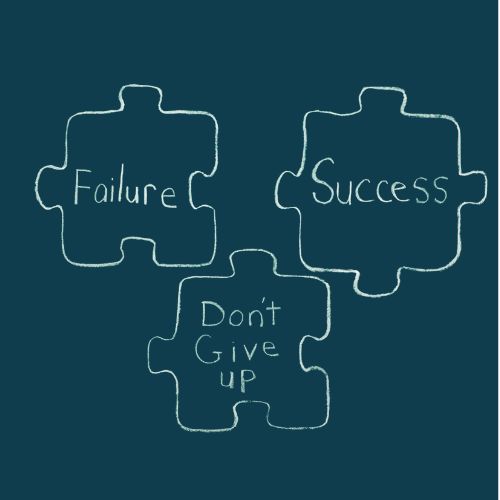
The Importance of Sleep for Optimal Health
In a world that never seems to stop moving, sleep can often feel like a luxury. But it’s not. It’s a necessity—a pillar of optimal health that affects every aspect of your life. From improving your mood to boosting your immune system, getting quality sleep is key to feeling and functioning your best. So, let’s dive deep into why sleep matters and how you can harness its power for a healthier, happier you.
1. Sleep: The Foundation of Good Health
When we think about health, diet and exercise usually come to mind. But sleep is just as important—if not more. While you’re catching Zs, your body is hard at work repairing tissues, building muscle, and consolidating memories. In fact, without adequate sleep, it’s nearly impossible to maintain optimal health.
Sleep is the time when your body recharges, both physically and mentally. It’s the foundation upon which all other aspects of your health are built. Prioritizing sleep ensures that your body and mind can function at their peak.
2. Boost Brain Function: Clearer Mind, Sharper Focus
Ever feel foggy after a night of poor sleep? That’s your brain telling you it didn’t get the rest it needed. Sleep plays a crucial role in cognitive function, memory consolidation, and decision-making. When you sleep, your brain processes information from the day, helping you retain knowledge and skills more effectively.
A well-rested brain is sharper, more creative, and better able to tackle challenges. Whether you’re studying for an exam, preparing for a presentation, or trying to make critical decisions, sleep is your secret weapon for mental clarity and enhanced productivity.
3. Regulate Your Emotions: Sleep Your Way to Emotional Balance
Lack of sleep can turn even the calmest person into a bundle of nerves. When you’re sleep-deprived, your brain’s ability to regulate emotions takes a hit, making you more prone to stress, irritability, and mood swings. It’s no coincidence that after a good night’s sleep, you’re more patient, optimistic, and able to handle life’s ups and downs.
Getting enough sleep helps keep your emotions in check, allowing you to respond to situations more calmly and rationally. Sleep is an emotional stabilizer, helping you feel more in control, even when life throws curveballs your way.
4. Strengthen Your Immune System: Sleep, Your Body’s Defense Mechanism
Did you know that sleep is a natural immune booster? When you sleep, your body produces proteins called cytokines, which help fight off infections, inflammation, and stress. Without enough sleep, your immune system becomes weakened, leaving you more vulnerable to illnesses like the common cold, flu, or even more serious health conditions.
Think of sleep as your body’s defense mechanism—a nightly recharge that helps you stay strong, healthy, and ready to fend off whatever comes your way.
5. Support Heart Health: Sleep for a Stronger Heart
Your heart works tirelessly throughout the day, and sleep is its time to rest and recover. During sleep, your blood pressure drops, giving your heart a much-needed break. Consistently getting quality sleep helps lower your risk of heart disease, stroke, and high blood pressure.
In contrast, chronic sleep deprivation has been linked to cardiovascular issues. So, if you want to keep your heart healthy and strong, don’t skimp on sleep—it’s an investment in your long-term well-being.
6. Manage Your Weight: Sleep and Metabolism Go Hand in Hand
Struggling with weight management? Your sleep (or lack thereof) might be the culprit. Research shows that people who don’t get enough sleep are more likely to gain weight and have difficulty losing it. Sleep helps regulate the hormones that control hunger and appetite—leptin and ghrelin.
When you’re sleep-deprived, ghrelin (the hunger hormone) increases, while leptin (the hormone that tells you when you’re full) decreases, leading to overeating and poor food choices. In short, quality sleep is essential for maintaining a healthy metabolism and achieving your weight goals.
7. Improve Athletic Performance: Sleep Like an Athlete
If you’re an athlete or someone who loves to stay active, sleep is just as important as your workout routine. During deep sleep, your body repairs and strengthens muscles, allowing you to recover from physical activity. Adequate sleep also improves reaction time, coordination, and endurance.
In fact, many professional athletes swear by 8-10 hours of sleep each night to optimize their performance. So, whether you’re training for a marathon or just enjoy a weekend hike, don’t underestimate the power of sleep to enhance your athletic abilities.
8. Enhance Mental Health: Sleep Your Way to a Happier Mind
There’s a strong link between sleep and mental health. Poor sleep not only affects your mood but can also contribute to mental health issues like anxiety and depression. Sleep helps regulate chemicals in the brain that influence mood, stress levels, and emotional well-being.
On the flip side, consistent, quality sleep can improve your mental health, helping you feel more balanced, focused, and positive. If you’re feeling overwhelmed or struggling with your mental health, getting more sleep might be the first step toward feeling better.
9. Create a Healthy Sleep Routine: Your Path to Better Rest
Now that you know why sleep is so important, let’s talk about how to get it. Creating a healthy sleep routine is key to ensuring you get the rest you need. Start by setting a consistent sleep schedule—going to bed and waking up at the same time every day helps regulate your body’s internal clock.
Next, create a calming bedtime routine. This could include reading, meditating, or taking a warm bath. Avoid screens and bright lights before bed, as they can interfere with your ability to fall asleep. Finally, make your sleep environment as comfortable as possible. A cool, quiet, and dark room will help you drift off into dreamland.






